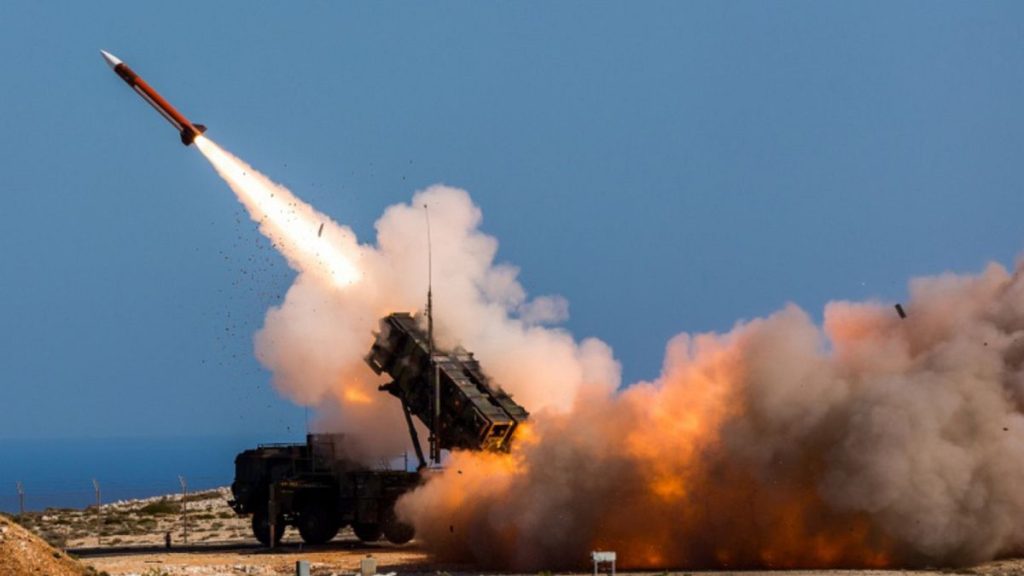European Commission president Ursula von der Leyen has shown support for a proposed “European air defence shield” put forth by Polish Prime Minister Donald Tusk and Greek Prime Minister Kyriakos Mitsotakis. This initiative aims to provide protection for the airspace of the European Union from various threats including aircraft, missiles, drones, and others. The leaders emphasize the need for a robust air defence system as a credible deterrent against potential aggressors, ensuring the safety and security of European citizens and military forces. Von der Leyen, a member of the same European political family as Tusk and Mitsotakis, endorses this proposal as part of her efforts to strengthen Europe’s defence capabilities, particularly in light of the ongoing conflict in Ukraine.
During a summit of EU leaders, the urgency of enhancing the bloc’s air defence capabilities was highlighted when Ukraine appealed to member states for assistance in defending against Russian missile attacks. Germany and the Netherlands have already responded by donating Patriot air defence systems to Kyiv, prompting calls for other EU countries with similar systems to contribute as well. Despite this pressure, many capitals are hesitant to share their own defence resources due to concerns about weakening their own security. The letter from Tusk and Mitsotakis underscores the importance of addressing this vulnerability and emphasizes that improving the EU’s ability to defend its airspace would also benefit the broader European defence and security industries.
The proposal for a European air defence shield aligns with von der Leyen’s commitment to enhancing defence cooperation among EU member states, particularly in the face of growing security threats in Europe’s periphery. The support for this initiative comes from a recognition of the need for a collective approach to countering potential aggressors and ensuring the safety of European citizens. The ongoing conflict in Ukraine has underscored the importance of having robust air defence systems in place to protect against external threats. By calling for a comprehensive and unified air defence shield, Tusk and Mitsotakis are advocating for a proactive approach to safeguarding the EU’s airspace and strengthening its overall security posture.
The integration of Europe’s defence industries is seen as a key component of enhancing the EU’s air defence capabilities and ensuring a more coordinated approach to security. By creating synergies between member states’ defence sectors, von der Leyen aims to address the existing fragmentation in Europe’s defence industry, which has hindered efforts to provide Ukraine with the necessary resources to withstand Russia’s aggression. The proposed European air defence shield is part of a broader strategy to promote cooperation and interoperability among EU countries, leveraging their collective strengths to bolster security across the region.
The reluctance of some EU member states to share their air defence systems with Ukraine reflects broader concerns about the impact on their own security and defence readiness. While countries like Germany have already contributed Patriot systems to Kyiv, others are wary of potential vulnerabilities that could arise from depleting their own resources. The letter from Tusk and Mitsotakis acknowledges these concerns and emphasizes the need for a more robust and comprehensive approach to enhancing the EU’s air defence capabilities. By addressing these reservations and highlighting the potential benefits of a unified European air defence shield, the leaders seek to galvanize support for a collective effort to strengthen the bloc’s security posture and protect its airspace.
Overall, the proposal for a European air defence shield represents a significant step towards enhancing the EU’s security and readiness to respond to emerging threats. By advocating for a comprehensive and unified approach to air defence, Tusk and Mitsotakis, supported by von der Leyen, underscore the importance of collective action in safeguarding the airspace of the European Union. The ongoing conflict in Ukraine serves as a stark reminder of the need for strong defence capabilities and cooperation among EU member states to address evolving security challenges. Through initiatives like the European air defence shield, Europe can demonstrate its commitment to protecting its citizens and upholding the security and stability of the region.


